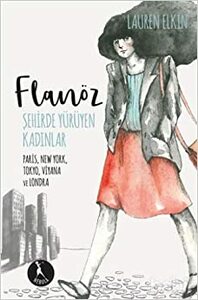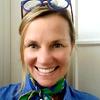Take a photo of a barcode or cover
only read the first half, had to return to library. will def check it out again!
Well-written and researched and, yet, for a book that hit every target market button in me (peripatetic, literature-loving, inveterate walker woman), I wanted to enjoy this read more than I did. I think perhaps it suffered by comparison to Jessa Crispin's excellent The Dead Ladies Project, which I read earlier this year. The books have a lot in common: women wandering around Europe (Elkin also spends time in New York and Tokyo) writing about artists who intrigue them interspersed with memoir. They even cover some of the same ground, namely London and Paris and Jean Rhys, albeit with very different takes. Elkin's chapter on the writer Martha Gellhorn also reminded me of Crispin's on Rebecca West. In short, Flâneuse became for me the square girl's version of Dead Ladies, which I write with the authority of being a square girl myself.
Part of what I mean by "square" has not just to do with what Elkin discloses about herself but that she is an academic, and the writing feels academic in parts. Flâneuse closes with 25 pages of a Bibliography and Notes, testament to what went into the book and the kind of detail you can expect. There are indeed gems in here, but I sometimes felt I had to wade through a lot to find them.
Part of what I mean by "square" has not just to do with what Elkin discloses about herself but that she is an academic, and the writing feels academic in parts. Flâneuse closes with 25 pages of a Bibliography and Notes, testament to what went into the book and the kind of detail you can expect. There are indeed gems in here, but I sometimes felt I had to wade through a lot to find them.
fast-paced
I really enjoyed this! Perfect thing to read at the beginning of uni in a new city that I need to figure out, studying for a degree that will hopefully land me in Paris for a year.
It was more personal than I expected - Tokyo, especially. Not a problem, really, just not what I'd anticipated.
It was more personal than I expected - Tokyo, especially. Not a problem, really, just not what I'd anticipated.
"It was as if there were two speeds of life in New York: married or very, very young." She nailed that. And her exploration of women walking on the street as a class issue. She describes walking in the suburbs: "The very appearance of another human, walking on foot, seems out of place and menacing." Her description of Tokyo highway crossings and address schemes drove my curiosity about that place away.
I wanted this to be more sociology and less memoir/biography.
I wanted this to be more sociology and less memoir/biography.



